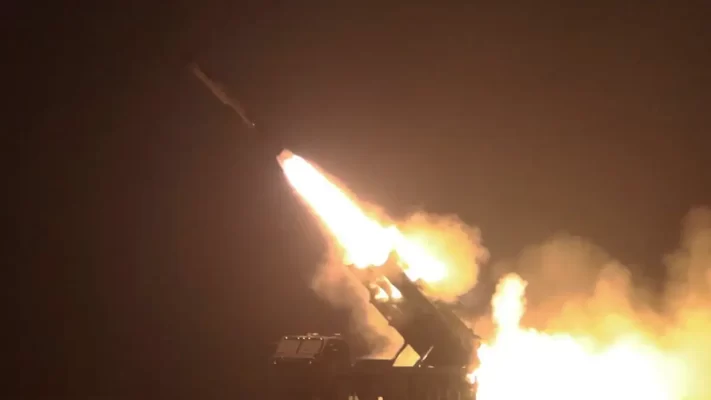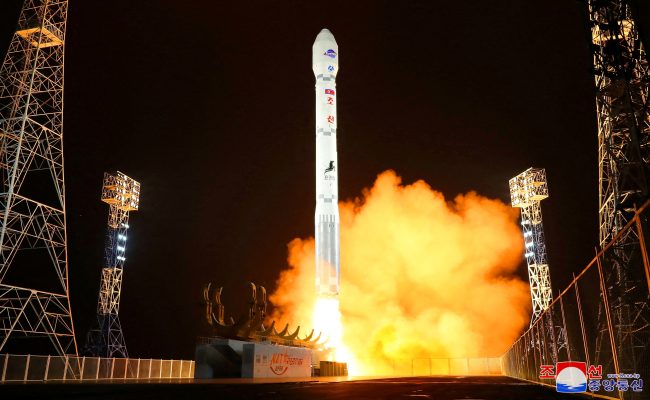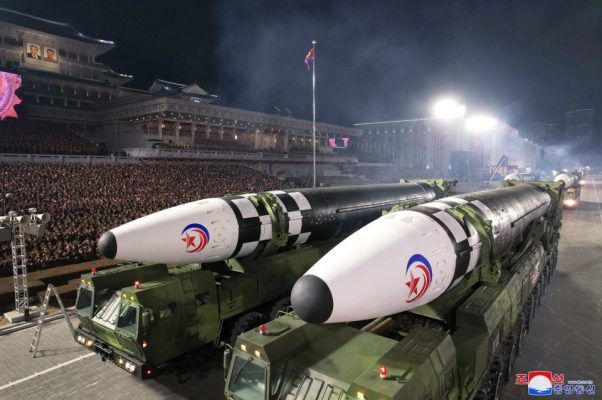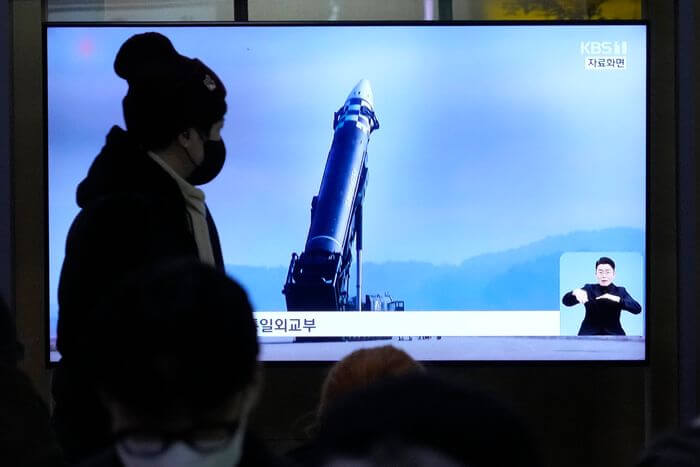North Korea Satellite Launch Raises Regional Tensions
North Korea has notified neighboring Japan of its upcoming satellite launch, intensifying regional tensions. The North Korea satellite launch window is set between May 31 and June 11. And the satellite launch may be an attempt to deploy Pyongyang’s first military reconnaissance satellite into orbit.
Japan’s coast guard received a notice from North Korean waterway authorities regarding the satellite launch.
The launch also window and trajectory could impact the Yellow Sea, East China Sea, and the waters east of the Philippines’ Luzon Island.
Concerned about potential risks from falling debris, Japan’s coast guard has issued a safety warning to ships in the area during those dates.
To launch a satellite, North Korea would employ long-range missile technology prohibited by U.N. Security Council resolutions.

Previous Earth observation satellite launches by North Korea suspect to be disguised missile tests.
Japan’s Chief Cabinet Secretary, Hirokazu Matsuno, emphasized that this launch violates U.N. resolutions. And also poses a significant threat to Japan, the region, and the international community’s peace and safety.
In response to the North Korea satellite launch plan, Japan’s Defense Minister, Yasukazu Hamada, has ordered the Self-Defense Force to shoot down the satellite. Or any debris that may enter Japanese territory.
There is a possibility that the satellite could pass over or enter Japan’s southwestern islands, including Okinawa, where major U.S. military bases and troops are located.
As a precaution, Japan has already deployed missile defense systems, such as PAC-3 and ship-to-air interceptors, in southwestern Japan.
North Korea’s Satellite Launch Notice to Japan
Japan’s Prime Minister, Fumio Kishida, has instructed officials to make every effort to gather and analyze information related to the satellite launch. The objective is to ensure that the public is well-informed about the situation.
With the launch, notice lacks specific details about the satellite type. It remains to be seen what capabilities the satellite possesses.
North Korea’s satellite launch plan comes at a time of heightened tensions on the Korean Peninsula. Over the past year, North Korea has conducted more than 100 missile tests.
Some of which are nuclear-capable and pose a threat to the United States, South Korea, and Japan.
These tests are often justified as responses to U.S. and South Korea military drills. North Korean leader Kim Jong Un has expressed his ambition to develop advanced weapons systems.

Including spy satellites, solid-propellant ICBMs, nuclear-powered submarines, hypersonic missiles, and multi-warhead missiles.
Amid the escalating tensions, Korea’s notification of a satellite launch to Japan has raised regional concerns. The North Korea satellite launch, in violation of U.N. resolutions, poses a threat to peace and safety.
Japan has responded by issuing a safety warning. And also preparing to intercept the satellite or debris if it enters Japanese territory.
As tensions continue to mount on the Korean Peninsula. Also, the international community closely monitors the situation and its implications for regional stability.
Does North Korea Have Satellites in Orbit?
North Korea has made attempts to launch satellites into space. There is ongoing debate regarding the success and effectiveness of these missions.
The first satellite, called Kwangmyongsong 1 was launched in 1998. While Korean authorities claimed it to be a success no independent foreign observers have been able to verify this claim. Most experts, from around the world believe that the satellite failed to reach its intended orbit.
In 2009 North Korea made another attempt with Kwangmyongsong 2. Similar to its predecessor this launch was widely regarded as a failure by observers.

In 2012 North Korea launched Kwangmyongsong 3 which also failed to reach its designated orbit.
Kwangmyongsong 3 Unit 2 was launched in December 2012. Is considered the North Korean satellite that may have successfully reached orbit. However doubts persist about its status as most experts believe it is currently a “tumbling object” in space lacking stability and proper functionality.
In 2016 North Korea claimed that Kwangmyongsong 4 was successfully placed in orbit. Nevertheless similar skepticism surrounds this satellites functionality as its predecessors.
To summarize while North Korea asserts having satellites, in orbit international experts generally agree that even if any of these satellites did manage to reach their intended orbits they are likely non operational.





